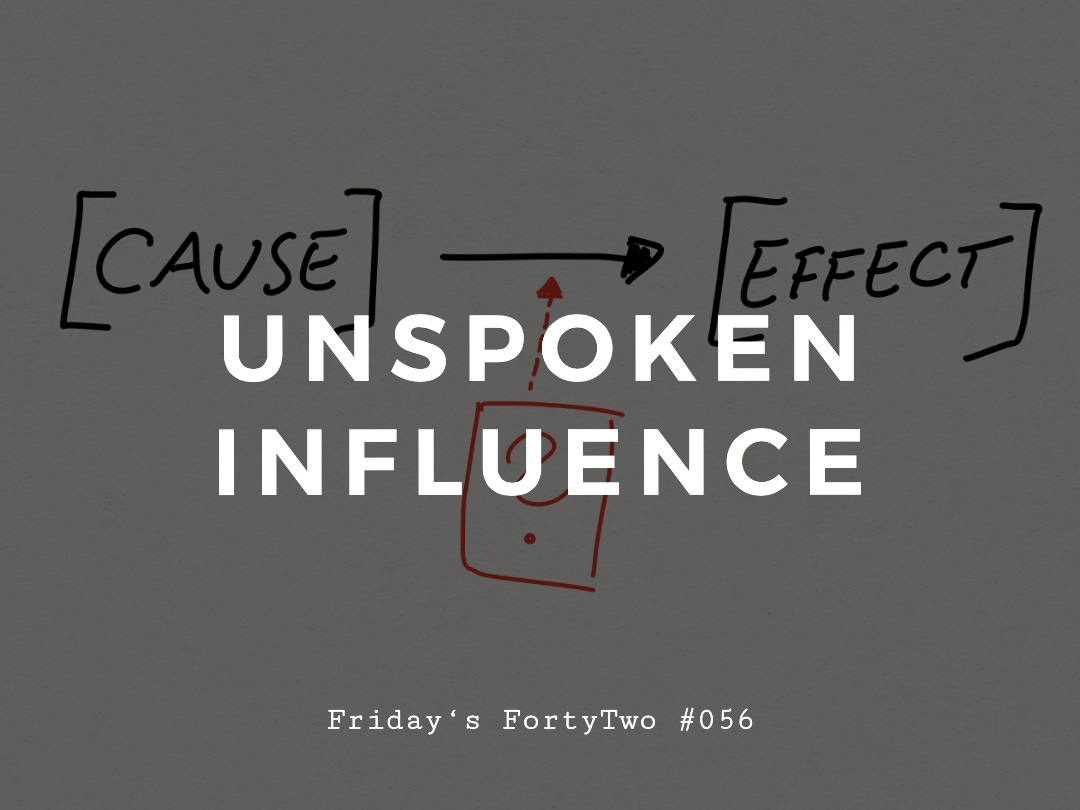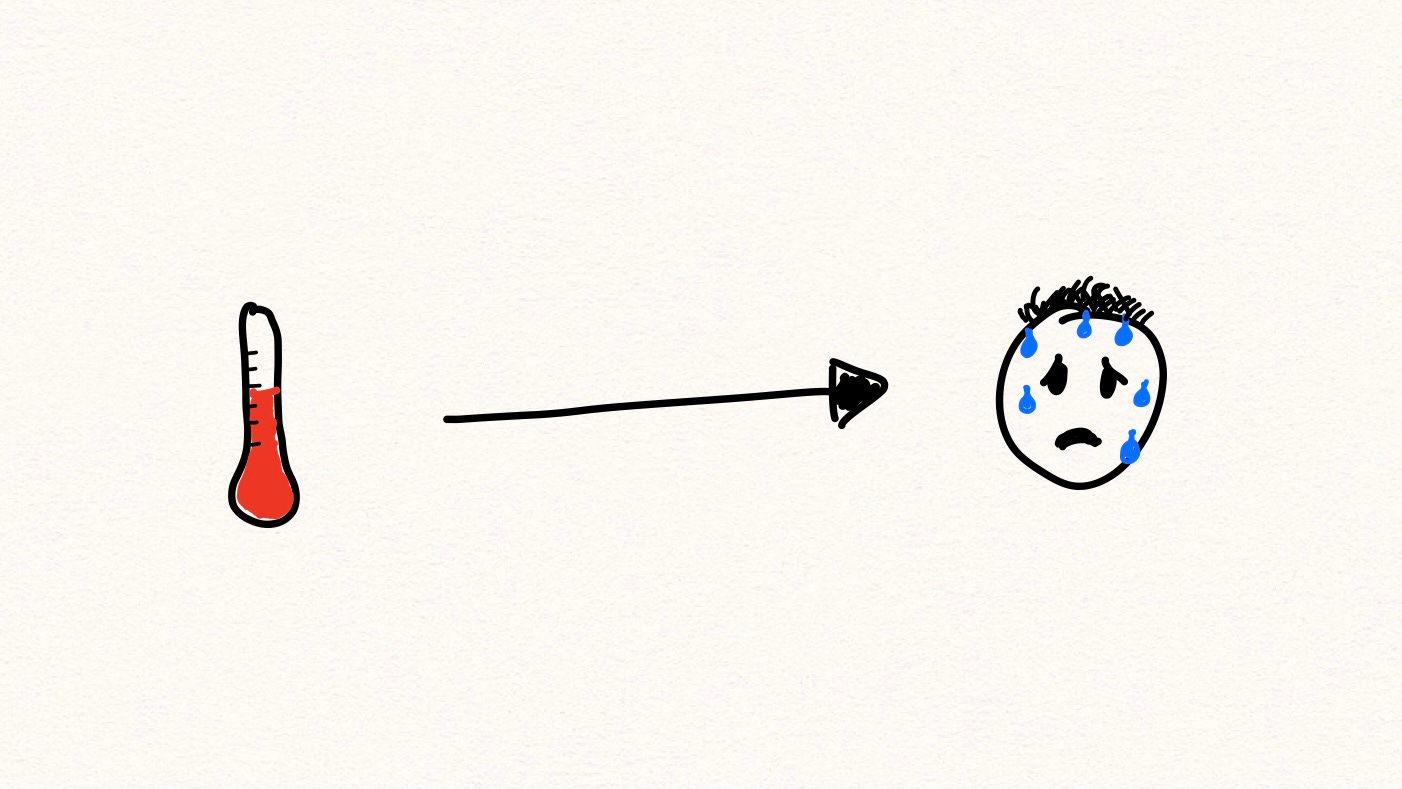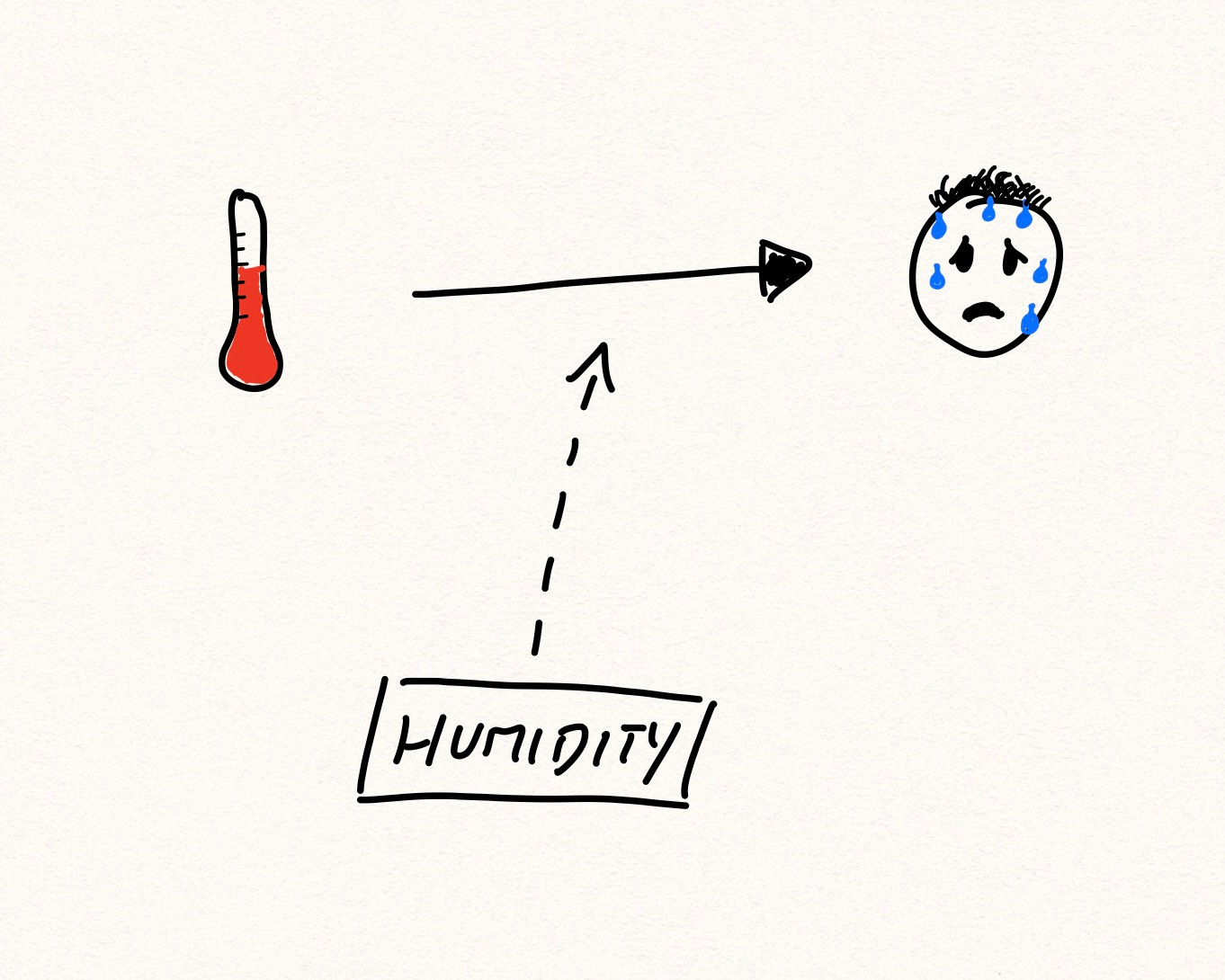Unspoken Influence
The secret agent between cause and effect
Hey,
it’s Phil.
If you feel stressed with more responsibility at work, if you get exhausted quickly after more exercise, if you get frustrated with your partner when arguing — understanding this will help you.
💦 What Makes You Sweat?
When it gets hotter, we start sweating. Some do earlier, some do later — but all of us humans do it (beautiful, right?).
Put more technically: we all know that, above a certain point,
[if the temperature increases], [I will sweat more].
Now, if you’ve ever travelled to South-East Asia, the South-American jungle or to any place near the equator during summer (or if you have ever been to a steambath), you have probably learned that you will sweat a lot more a lot faster if the air is humid enough.
Again, put more technically:
[if the temperature increases], [I will sweat more] — [depending on humidity].
Humidity is the context that influences how much the same increase in temperature will affect your sweating.
If we were in a statistics class, we’d call humidity the moderator variable, temperature the independent variable (or predictor) and the amount of sweat the dependent variable (or criterion).
But we aren’t, and I couldn’t care less about correct nomenclature, so let’s just say that very often in life, there’s a moderator (humidity) influencing the relation between cause (temperature) and effect (sweating).
👀 Hidden Effects
Now, such moderators are omnipresent in life. But they usually work behind the scenes.
Let me ask you this:
Does more responsibility at work (cause) make you feel more anxious (effect)?
If you’re anything like me or anyone else I know, it does to some degree.
But what if you had a boss who is extremely encouraging (or demoralizing), colleagues who are supportive (or destructive), and processes that are straightforward (or confusing)?
Wouldn’t that make you handle the added responsibility a lot better (or worse)?
I guess it would.
Work culture is the moderator which impacts how strongly added responsibility will cause you to stress and get anxious (effect).
However, unless we have enough experience with different work cultures and how we can handle them, their moderating effect will stay hidden from us.
The only thing we’ll see is that added responsibility makes us freak out. And maybe we’ll even shy away from taking over more responsibility in the future because we don’t like freaking out (who does?).
🎛 Contextual Nuance
This effect applies to many areas of our lives — relationships, family, work, habits, happiness, …
The context we’re in and the moderators emerging from it pulls its strings on the cause-and-effect relationships of our everyday experience.
And whenever these strings aren’t obvious, we might get this relationship wrong.
In other words,
if we don’t understand the moderators around us, we won’t understand ourselves.
What helps is contextual nuance. You gain it by asking either of two questions:
How would this (cause) make me think/feel/do (effect) differently if that (moderator) was different in what way?
— How would this added pressure make me feel more or less stressed if my work culture was different in what way?
— How would my partner’s messiness annoy me less if our morning routines were different in what way?What (moderator) needs to change in what way such that this (cause) makes me think/feel/do (effect) differently?
— What needs to change in what way such that the added pressure at work makes me less stressed?
— What needs to change in what way such that my partner’s messiness annoys me less?
To nuance, context and understanding ourselves better,
Phil
🎙 If you like this essay, help spread the word:
💬 If you want to engage or share your thoughts:
✅ If you want to receive weekly ideas like this one:




